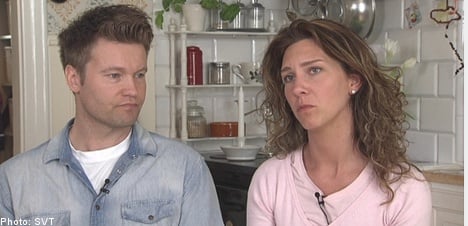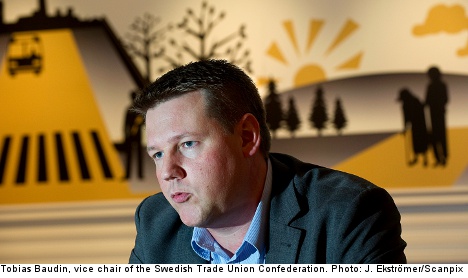“”It was terribly difficult, it’s people you care deeply for,” she said to the Aftonbladet newspaper.
Jennie and Thomas, a couple from Sandviken, in northern Sweden, explained on investigative journalism show Uppdrag Granskning earlier in the week how all it took was one call to social services for them to be charged with sexual abuse and have their children taken from them for over two months.
After the story broke big in Swedish media, the woman’s sister, who had made the call to the authorities, approached daily newspaper Aftonbladet, eager to have her part in the story explained.
”There’s more to this than what has previously been told in the media,” she said.
According to the sister, she had become increasingly worried after hearing Jennie mention incidents that sounded inappropriate on more than one occasion.
”I just couldn’t let go of what she told me. It was like a beaker getting fuller and fuller every time. In the end, when Jennie brought it up again during a car journey, it just spilled over,” the sister told the paper.
She told Aftonbladet that she sought counsel from two separate psychiatrists before she phoned the social services.
Both advised her that it sounded as if the family didn’t set appropriate sexual boundaries and that it could be a question of incest.
According to the sister, she he tried to talk to Jennie about it but felt like she wasn’t getting any reponse from her.
”I tried but she didn’t take it seriously.”
Jennies’ sister was surprised, after making the call, to hear that the authorities had taken the children. She also told the paper that she feels like many in the community have turned against her after the events werer made public – something she feels is unfair.
The worst case scenario, she said, is that people will now become afraid of reporting their suspicions to the authorities.
”I love my nieces, but I haven’t seen them in a year,” she told the paper.
Jennie and Thomas have refused to comment on their current relationship with Jennie’s sister. To them, this is matter best left to solve within the family and choose to avoid mud-slinging in the media.
However, in a live debate on Swedish television on Thursday night, Jennie and Thomas had a chance to finally confront the local authorities about what happened and were hoping for an apology for the ordeal that the family was forced to endure for a year.
However, the representatives for the local authority refused to apologize.
”It is always unfortunate when these things occur and there is always someone who is hurt. We have legislation which prioritizes what is best for the children, and sometimes, sadly, this means that adults are affected. It is unfortunate and tragic,” said Renate Almén of the Sandviken municipality.
Almén didn’t agree that the children had suffered from what had happened and was not prepared to offer the couple the apology they were after.
”If we make a mistake we rectify it. Why should we apologize for following Swedish legislation?” she said on the show.
However, after the show, local politicians and civil servants in Sandviken have received death threats via the municipality web page.
”We are taking these very seriously,” said municipality head Ann-Katrin Sundelius to TV4.



 Please whitelist us to continue reading.
Please whitelist us to continue reading.
Member comments